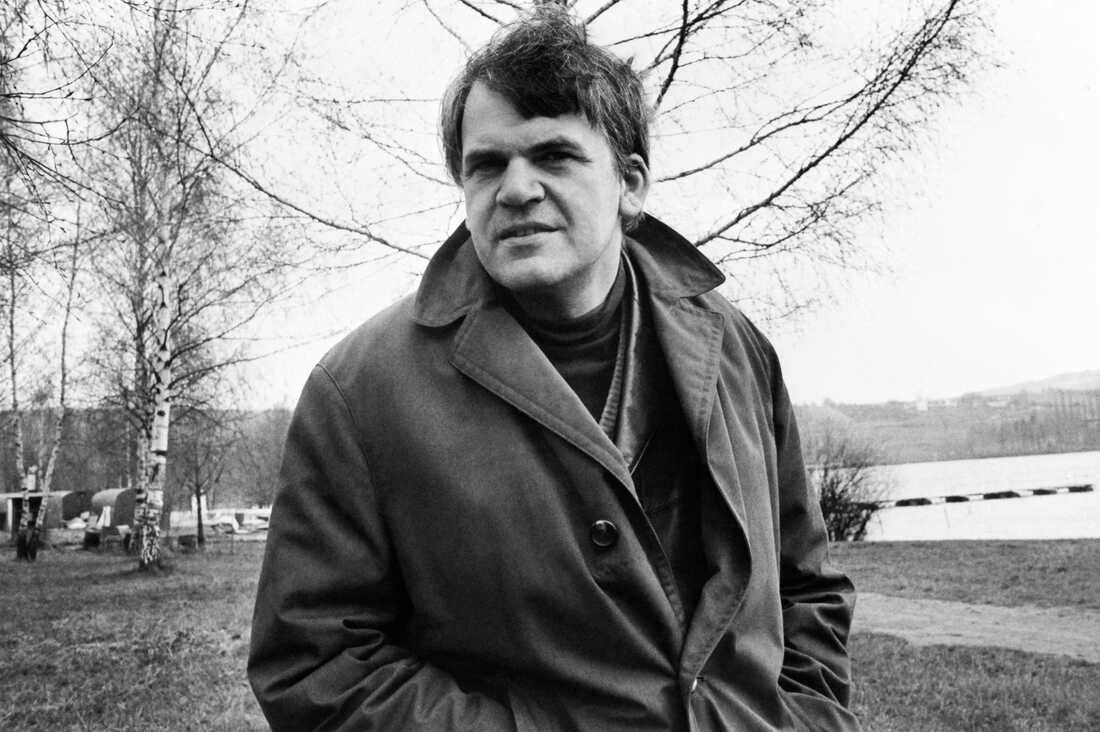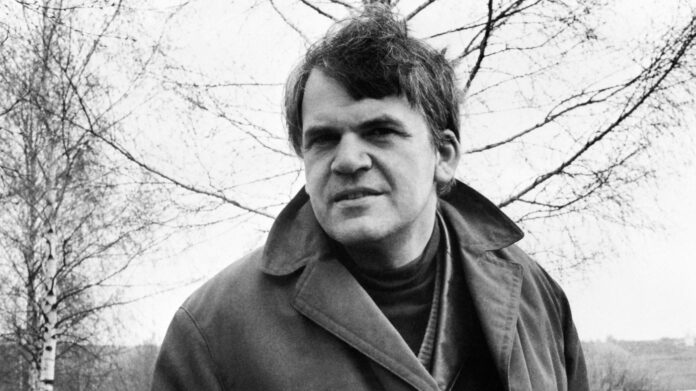Milan Kundera, who wrote ‘The Insufferable Lightness of Being,’ dies at 94

Czech creator Milan Kundera is greatest identified for his guide The Insufferable Lightness of Being. After the Soviet occupation, Kundera was blacklisted and banned. He lived in exile in France, the place he would later develop into a citizen. He is pictured above in 1973. AFP through Getty Pictures cover caption
toggle caption
AFP through Getty Pictures

Czech creator Milan Kundera is greatest identified for his guide The Insufferable Lightness of Being. After the Soviet occupation, Kundera was blacklisted and banned. He lived in exile in France, the place he would later develop into a citizen. He is pictured above in 1973.
AFP through Getty Pictures
The Czech author Milan Kundera was taken with huge matters — intercourse, surveillance, dying, totalitarianism. However his books at all times approached them with a humorousness, a sure lightness. Kundera has died in Paris on the age of 94, the Milan Kundera Library mentioned Wednesday.
Kundera’s hottest guide, The Insufferable Lightness of Being, follows a tangle of lovers earlier than and after the Soviet occupation of Czechoslovakia in 1968. It begins off ruminating on philosophy, however it has a conversational tone.
Kundera performed with dichotomies — easy pictures in opposition to high-minded philosophy — presenting totalitarianism as each momentous and on a regular basis. Intercourse being each deeply critical and type of gross and humorous.
“He is taken with what he calls the pondering novel,” says Michelle Woods, who teaches literature at SUNY New Paltz. Woods wrote a guide concerning the many translations of Kundera’s work and he or she says Kundera thought readers ought to come to novels searching for extra than simply plot – they need to depart with “extra questions than solutions.”
Kundera was born in Brno, Czechoslovakia in 1929. His first guide, The Joke, was a satirical tackle totalitarian communism. The Czech authorities held up its publication, insisted that Kundera change just a few issues, however he refused. It was finally printed in 1967 to huge acclaim.
A yr later, Czechoslovakia, which was in the course of a cultural revolution, was invaded by the Soviet Union, and Kundera was blacklisted. His books had been banned from shops and libraries. He was fired from his instructing job. He tried to remain in his residence nation however finally left for France in 1975.
Kundera set Insufferable Lightness throughout this time in Czech historical past and the guide was later made right into a film. Tomas — within the film performed by Daniel Day-Lewis — is a health care provider who, amidst all this political turmoil and unrest, is busy juggling lovers.
The guide coupled together with his standing as a writer-in-exile made Kundera common throughout the globe — however Michelle Woods mentioned he bristled on the fame.
“He actually hated the concept that individuals had been obsessed by the celeb creator,” she says.

Kundera was a author who hated fame and shied away from the highlight. He is pictured above in Paris in November 2010. Miguel Medina/AFP through Getty Pictures cover caption
toggle caption
Miguel Medina/AFP through Getty Pictures
He did not do many interviews and he did not like being glorified. And even after being exiled from his residence — he did not like being seen as a dissident.
“It is possibly apocryphal, however apparently when he first went again to the Czech Republic he wore a disguise — a pretend moustache and stuff, so he would not be acknowledged,” Woods says.
He was at all times taken with humor, particularly within the face of one thing deathly critical. In a uncommon 1983 interview with the Paris Assessment, he mentioned: “My lifetime ambition has been to unite the utmost seriousness of query with the utmost lightness of type.”
Mixing the 2 collectively, Milan Kundera believed, reveals one thing trustworthy about our lives.















